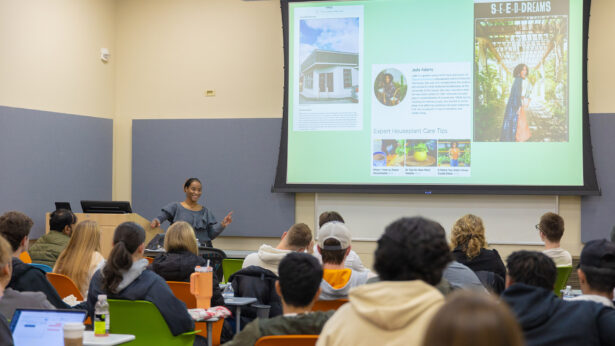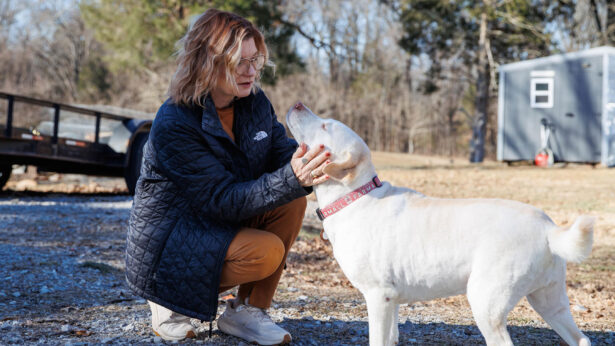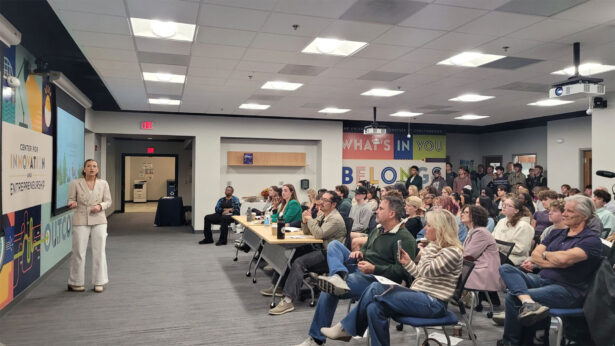As a participant in the Research Experiences for Undergrads program, funded by the National Science Foundation, Melanie Ponce trekked through the sultry swamps of Louisiana the last summer of her undergraduate studies.
After applying for multiple research opportunities around the country, she found a project with the University of Louisiana at Lafayette for its Healthy Streams, Healthy Coasts site. Ponce spent 10 weeks in the heat and humidity studying whether assimilation wetlands in Louisiana increased the production of methane gas. Assimilation wetlands, also known as wastewater-to-wetlands, have treated wastewater flowing into them.
Naturally, she learned about her research interests. She also learned skills to survive the Louisiana heat.
“Sitting in the mud will help cool you off, and always wear long-sleeved shirts and a hat because of the mosquitoes,” she says of lessons learned.
The experience also helped her gain a better understanding of where she wanted her career and research areas to go after she graduated. Ponce, a December 2021 UT Southern graduate, found her passion during a conservation course taught by Shanna Hanes, assistant professor in biology.
“The ecosystem is degrading over time, and I think taking those classes at UT Southern helped me to realize I’m really passionate about it,” Ponce says.
Hanes saw Ponce’s potential and, through working with her in small-group settings, knew Ponce would be able to play a role in the future of conservation.
“I became increasingly impressed with her strong work ethic both in and out of the classroom,” Hanes says. “Melanie has demonstrated a sincere passion for biodiversity and took advantage of every opportunity to gain the knowledge and skills that will help her succeed as a future conservation biologist.”
Ponce almost didn’t attend the school formerly known as Martin Methodist College. Being from North Alabama, she originally planned to attend the University of Alabama in Huntsville. She changed her mind when she was awarded the Barton Scholarship, a competitive full-tuition scholarship based on academic merit.
“I was really scared to go to a big school,” Ponce says. “And then we toured Martin Methodist, and I was, like, ‘Wow, this really feels like home.’”
Her new home led her to a future in conservation and research.
After spending her summer tromping through swamps in the Louisiana heat, she determined there may be more to study.
“The methane gas was actually lower than the control wetland that had not been touched by humans,” she says. The results were a surprise, given her hypothesis. Ponce reasoned, “Different water levels may be affecting the methane gas productions since the control had more water than the assimilation.” Ponce’s early findings point to the need for more research.
Having graduated from UT Southern, Ponce plans to attend graduate school and focus her research on the human impact on coastal areas with estuaries.
“I wish more young people shared her determination and passion for the natural world. I have no doubt she will go far,” Hanes says.



